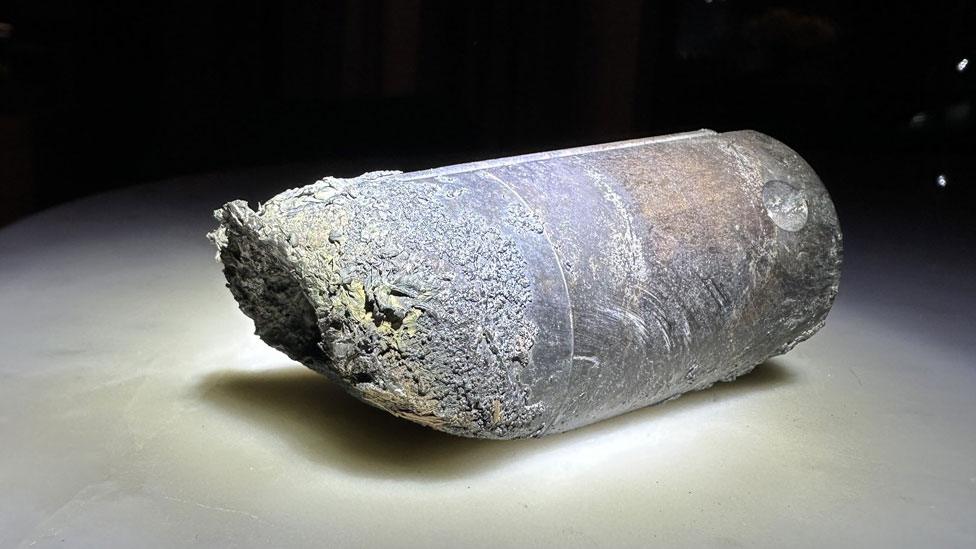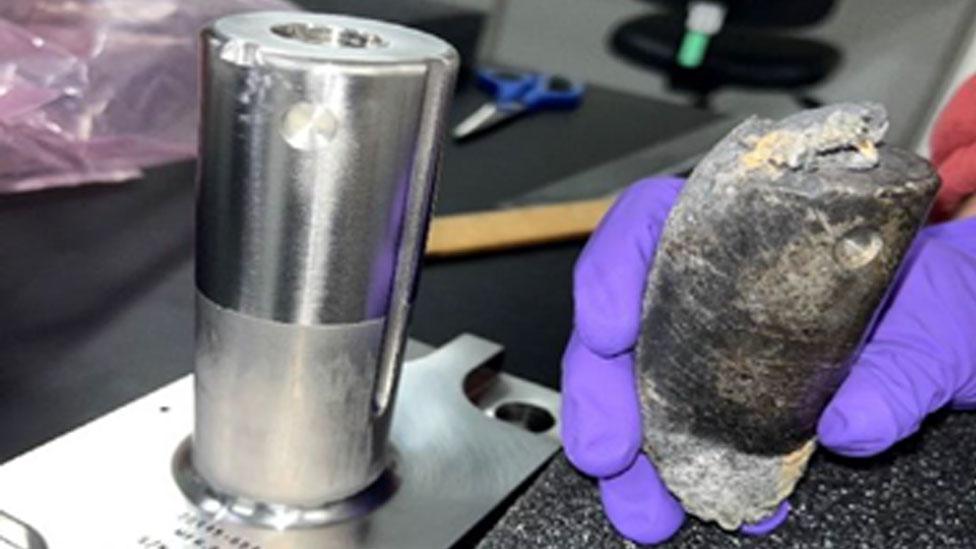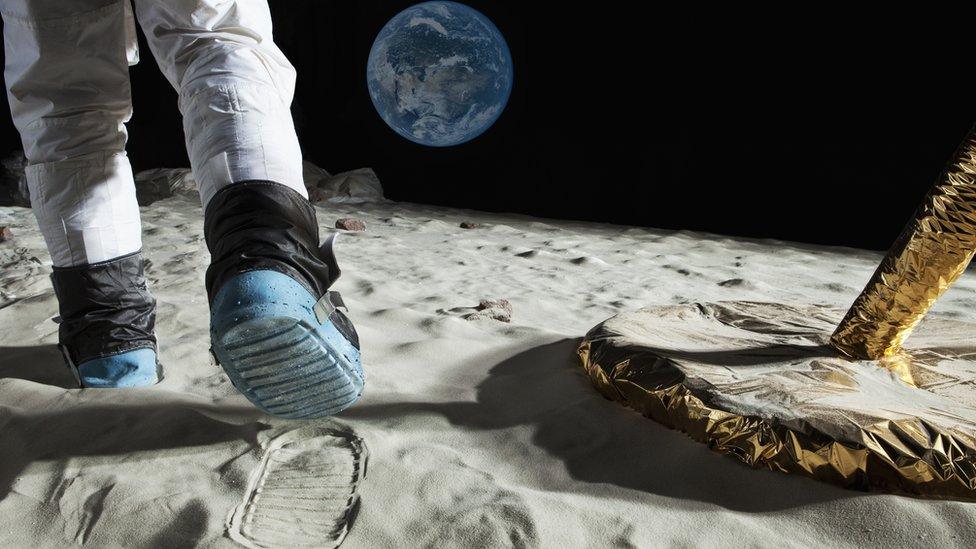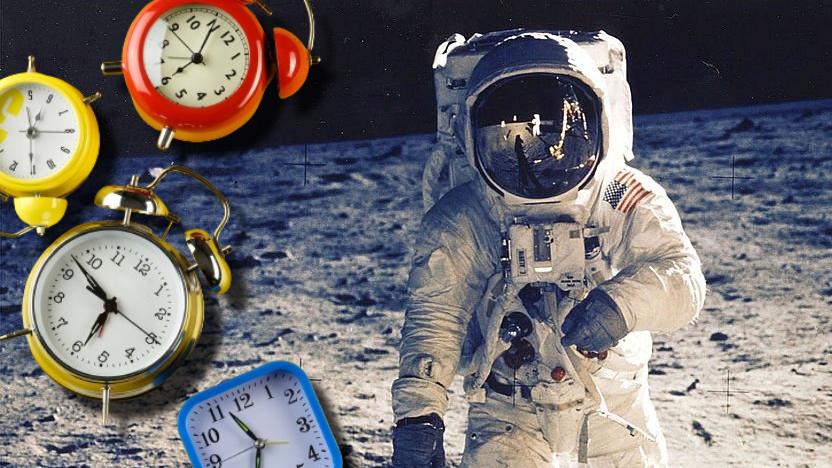US family suing Nasa after part of ISS fell on their home
- Published
- comments

One family was shocked to find a part from the International Space Station fell on their house, and are now suing Nasa for damages to their home
Back in March this year, a mysterious metal object fell through the roof of Alejandro Otero's home in Florida, which Nasa confirmed to be a bit of old equipment from the International Space Station (ISS)
No one was physically harmed, now the family are suing Nasa to receive compensation - money awarded to recognise suffering - to the value of $80,000, around £63,000.
The US lawyer representing the family, Mica Nguyen Worthy said the family want compensation for the "stress and impact of that this event had on their lives".
But don't worry about this happening to you anytime soon - according to space research and development company Aerospace, the chances of being struck by an object from space are one in a trillion depending on where you live - which is incredibly low.

This is what the object would have looked like on the ISS, compared to how it looked like after falling from space
This story goes back to March 2021, when Nasa released some old batteries from the ISS that were no longer needed.
Nasa say that they fully expected this space junk, weighing over a whopping 2,600kg (5,500lbs), to burn up in the Earth's atmosphere. But clearly one part got away.
The chunk of equipment that fell on Alejandro's home in 2024 was a 10cm metal cylinder weighing less than one kilogram, but it still made quite an impact when it landed.
Nasa's experts managed to work out that the metal object was used as a support for holding the old batteries in transport.
The ISS will "perform a detailed investigation" on how the debris survived burn-up through the Earth's atmosphere, Nasa says.
What is the International Space Station?
WATCH: What is the International Space Station?
The ISS is a satellite orbiting the Earth. It's a base for scientists and astronauts from a number of different countries around the world.
Together they carry out experiments to learn more about living and working in space.
The ISS was built in space, starting in 1998, with more and more modules - different parts of the station - being added ever since.
It's been in orbit for over 20 years, and Nasa plans to retire (or 'deorbit') the ISS after 2030.
What is the problem with space junk?
Why space junk is a problem for scientists? (from April 2021)
While Nasa says the chance of falling space debris causing harm to humans on Earth is extremely small, there are a growing number of objects in Earth's low orbit which are presenting problems for scientists.
According to stats from Our World in Data, 2023 was the biggest year for launches, with a total of 2,664 objects sent into space.
The BBC's Sky at Night says that the ISS has had to reposition itself 30 times since it began operation to avoid collisions with space junk - like old and broken satellites - in the Earth's orbit.
Scientists are researching ways to tackle the problem., including big magnets or claws that can collect pieces of junk.
- Published11 April 2024

- Published3 April 2024

- Published21 March 2024

